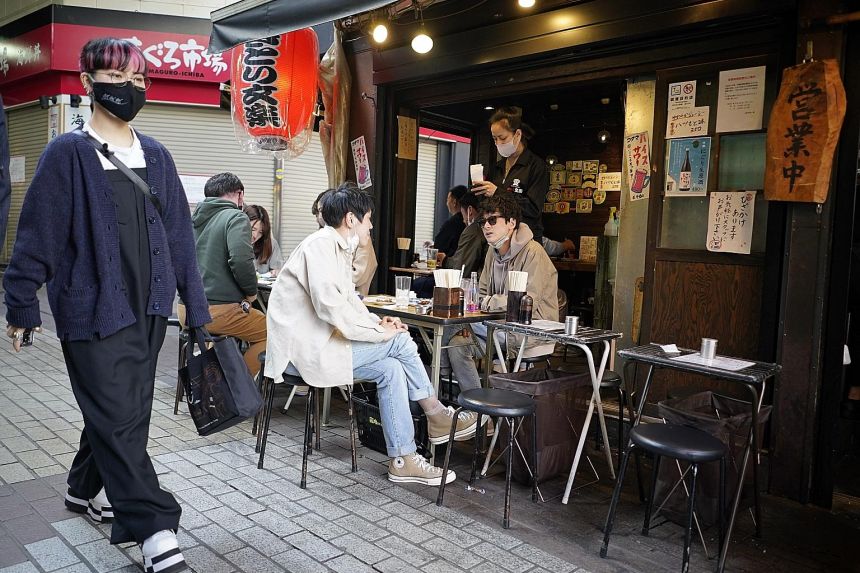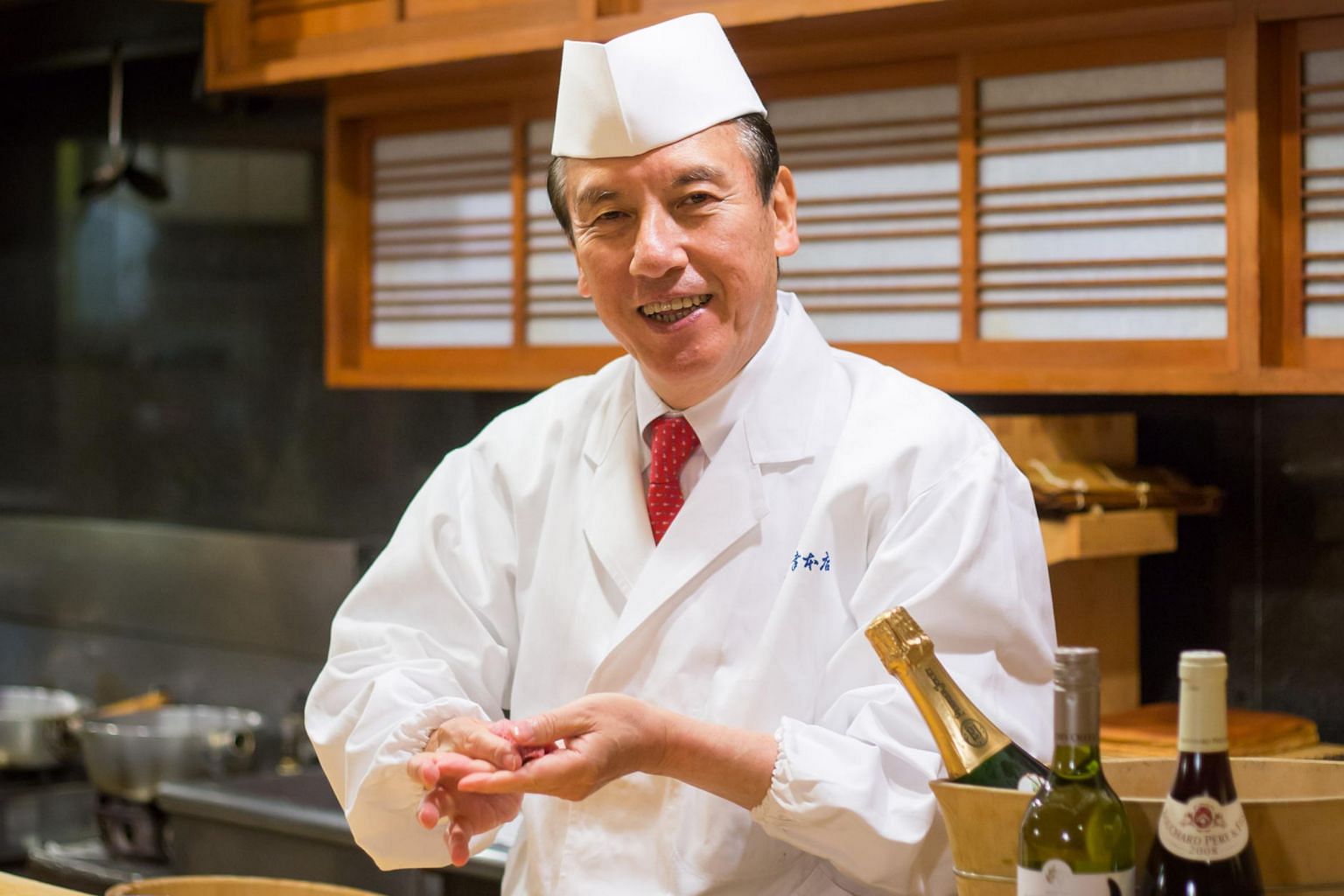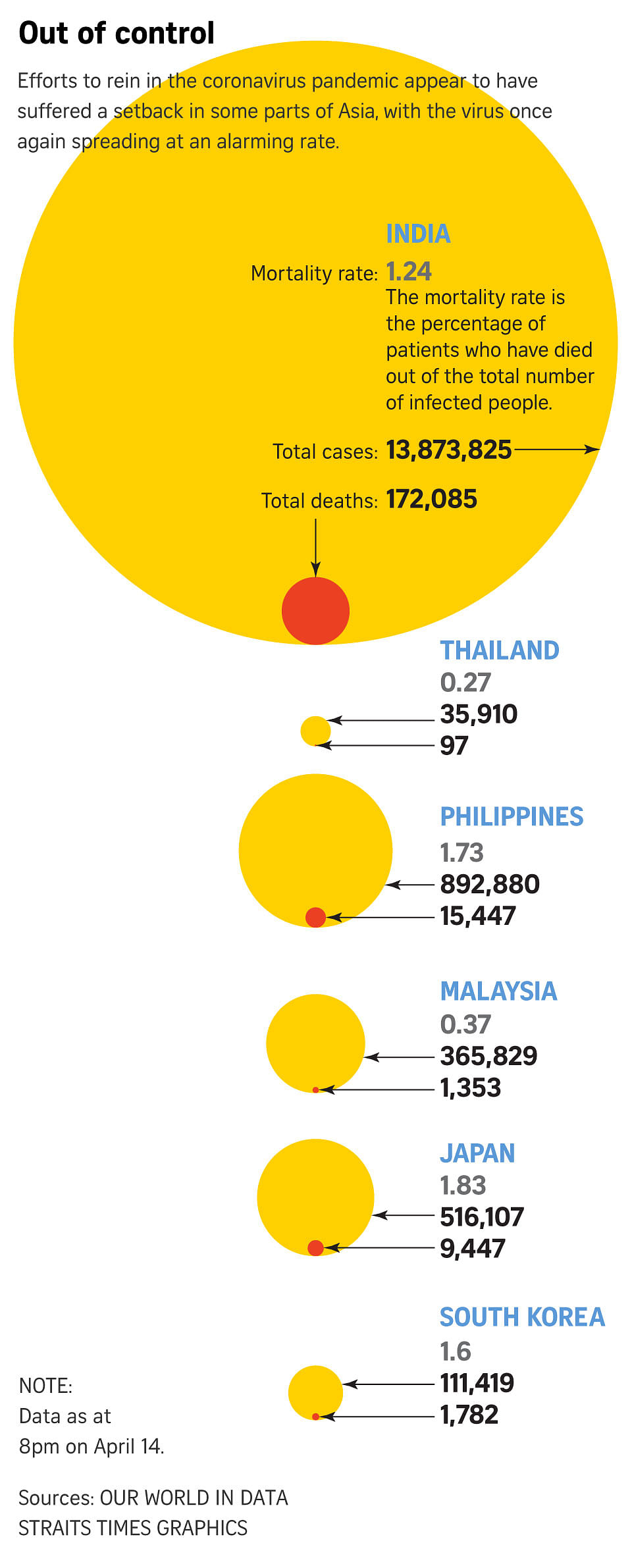Covid-19 surge in Asia: Cases keep rising in Japan, with no end in sight
Sign up now: Get insights on Asia's fast-moving developments

Diners at a restaurant at Ueno district in Tokyo on April 12, 2021.
PHOTO: EPA-EFE
Follow topic:
TOKYO - Sushi chef Mamoru Sugiyama's family business has weathered natural disasters, World War II bombings and recessions, but he regards the Covid-19 pandemic as the biggest threat to the survival of his 130-year-old restaurant.
The 67-year-old fourth-generation owner of Sushi Ko in Tokyo's high-end Ginza shopping district told The Straits Times that the biggest challenge is uncertainty over the future and how long Covid-19 will drag on.
As government grants were limited, he had to dip into his savings to keep the business afloat and pay staff salaries. Revenue has fallen by 70 per cent since the pandemic started.
"Instead of ineffective half-baked measures, I'd rather the government act decisively and implement a strict lockdown - with financial support for the needy - and put the virus under control," he said. "This ordeal has been really taxing."
Tokyo, which marked 100 days to the Olympics on Wednesday (April 14), has flitted in and out of Covid-19 emergency measures. The capital was under an emergency decree from Jan 8 to March 21, only to enter a so-called "quasi-emergency" three weeks later.
This is under a new law that allows emergency-level measures to be imposed in specific cities or areas, rather than whole prefectures.
Areas in six prefectures - Tokyo, Osaka, Kyoto, Hyogo, Miyagi and Okinawa - are now under the quasi-emergency, but the leaders of Aichi, Kanagawa and Saitama said on Wednesday that they would want to be included.
Under the measure, food and beverage businesses are asked to stop serving alcohol by 7pm and dine-in service by 8pm.
This costs Mr Sugiyama the high-spending dinner crowd on top of the foreign tourists who have been absent for over a year. Singaporeans are his second-largest foreign customer group.
And there is no end in sight.
The latest surge in cases comes despite the public having generally been conscientious in observing basic hygiene etiquette like wearing masks and sanitising hands.
But when pleas to avoid large gatherings and non-essential outings are being ignored by politicians and bureaucrats, it is not surprising that the advice has fallen on deaf ears as crowds, desensitised to the coronavirus, again throng the streets.
Public vaccinations, proceeding at a snail's pace, finally began for the elderly on Monday. Yet, the milestone has been marred by headlines of doses going to waste after their intended recipients got cold feet.

Sushi chef Mamoru Sugiyama regards the Covid-19 pandemic to be the biggest threat to the survival of his 130-year-old restaurant.
PHOTO: GINZA SUSHI KO
What will add to fears is news that a medical worker in her 60s died of a brain haemorrhage in Nagasaki last month, 10 days after receiving her first dose of the Pfizer vaccine. She had no prior health issues, nor did she report side effects after vaccination, officials said, adding that a probe is ongoing into her death.
Wednesday also marked what appeared to be a perception problem within top government ranks.
Dr Shigeru Omi, who heads a government expert panel, warned that Japan was in the fourth wave, only to be refuted moments later by Prime Minister Yoshihide Suga, who said: "I don't see a big wave of infections nationwide."
Yet, Wednesday's tally of 4,312 cases marked Japan's highest figure since Jan 28. Osaka's 1,130 cases was a new high, as was neighbouring Hyogo's 507 cases. Tokyo's 591 cases was its highest since Feb 6.
The surge is being driven by the British variant that is 32 per cent more infectious than the original coronavirus. Despite lessons that could have been gleaned from the experience of other countries, and its own past waves, Japan's hospitals are once again under strain.


